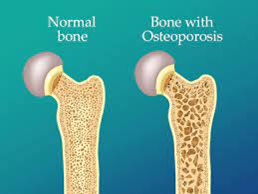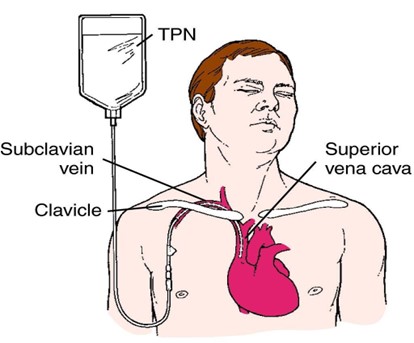A nurse is caring for a client who is receiving meperidine. Which of the following is the nurse's priority assessment before administering the medication?
Urinary retention
Vomiting
Respiratory rate
Level of consciousness
The Correct Answer is C
A. Urinary retention: While urinary retention can be a side effect of meperidine and other opioids, it is not the priority assessment before administering the medication. Urinary retention is a concern but is not immediately life-threatening compared to other potential side effects of opioids, such as respiratory depression. Assessing urinary retention is important, but it is not the primary concern in this situation.
B. Vomiting: Vomiting can also be a side effect of opioids, including meperidine. While it is essential to assess for vomiting and its potential impact on the client's overall condition, it is not the priority assessment before administering the medication. Vomiting can be managed, and the nurse should address it as needed. However, the priority assessment is one that can affect the client's immediate safety and well-being, such as respiratory rate and potential respiratory depression.
C. Respiratory rate: This is the correct answer. The priority assessment before administering meperidine is the client's respiratory rate. Opioids can cause respiratory depression, leading to reduced breathing and inadequate ventilation. Monitoring the respiratory rate allows the nurse to detect any signs of respiratory distress or inadequate breathing, enabling them to intervene promptly to prevent serious complications.
D. Level of consciousness: While assessing the client's level of consciousness is essential for overall assessment and monitoring, it is not the priority assessment before administering meperidine. Respiratory depression due to opioid use can occur even when the client is conscious. However, if respiratory depression occurs, it can lead to a decrease in consciousness and potentially unconsciousness, making the assessment of respiratory rate more critical to prevent such complications.

Nursing Test Bank
Naxlex Comprehensive Predictor Exams
Related Questions
Correct Answer is B
Explanation
When caring for a client receiving a continuous infusion of total parenteral nutrition (TPN), the nurse should implement the intervention of checking the client's blood glucose level regularly. TPN is a highly concentrated intravenous nutrition solution containing glucose, amino acids, lipids, vitamins, and minerals, and it is used to provide complete nutrition when the client cannot take oral nutrition.
Monitoring blood glucose levels regularly is essential because TPN is rich in glucose, which can significantly affect the client's blood sugar levels. Hyperglycemia (high blood sugar) is a potential complication of TPN infusion. Regular blood glucose monitoring allows the nurse to detect and address any changes in blood sugar levels promptly and to adjust the TPN infusion rate or administer insulin, if necessary, to maintain the client's blood sugar within the target range.
Let's go through the other options:
A. Change the TPN infusion tubing once every 3 days: While changing the TPN infusion tubing regularly is a good practice to maintain asepsis and prevent infection, it is not the priority intervention in this situation. Regularly checking the client's blood glucose level is more crucial to monitor the effects of TPN on blood sugar levels.
C. Insert the peripheral IV catheter for administration: Total parenteral nutrition is a hypertonic solution that can cause irritation and damage to peripheral veins. It is usually administered through a central venous catheter (CVC) placed in a large vein, such as the subclavian or jugular vein. Inserting a peripheral IV catheter for TPN administration is not recommended due to the risk of vein damage and thrombosis.
D. Monitor the client's weight every 3 days: Monitoring the client's weight is an important part of assessing their nutritional status and fluid balance. However, the priority intervention for a client receiving TPN is checking their blood glucose level regularly, as hyperglycemia is a common and significant concern in TPN administration.

Correct Answer is ["0.12"]
Explanation
To calculate the rate at which the IV pump should be set to deliver dopamine, we need to determine the total amount of dopamine in the infusion and divide it by the desired dose per minute.
Given:
Dopamine concentration: 400 mg in 250 mL
Desired dose: 5 mcg/kg/min
Patient weight: 220 lb
First, we need to convert the patient's weight from pounds to kilograms:
220 lb ÷ 2.2 = 100 kg
Next, we need to calculate the total amount of dopamine needed per minute:
5 mcg/kg/min × 100 kg = 500 mcg/min
Now, we need to convert the dopamine dose from mcg to mg:
500 mcg/min ÷ 1000 = 0.5 mg/min
To determine the infusion rate in mL/hr, we divide the dose in mg/min by the dopamine concentration in the infusion solution:
0.5 mg/min ÷ 250 mL = 0.002 mL/min
Finally, we convert the infusion rate from mL/min to mL/hr by multiplying by 60:
0.002 mL/min × 60 min = 0.12 mL/hr
Therefore, the nurse should set the IV pump to deliver 0.12 mL/hr.
Whether you are a student looking to ace your exams or a practicing nurse seeking to enhance your expertise , our nursing education contents will empower you with the confidence and competence to make a difference in the lives of patients and become a respected leader in the healthcare field.
Visit Naxlex, invest in your future and unlock endless possibilities with our unparalleled nursing education contents today
Report Wrong Answer on the Current Question
Do you disagree with the answer? If yes, what is your expected answer? Explain.
Kindly be descriptive with the issue you are facing.
